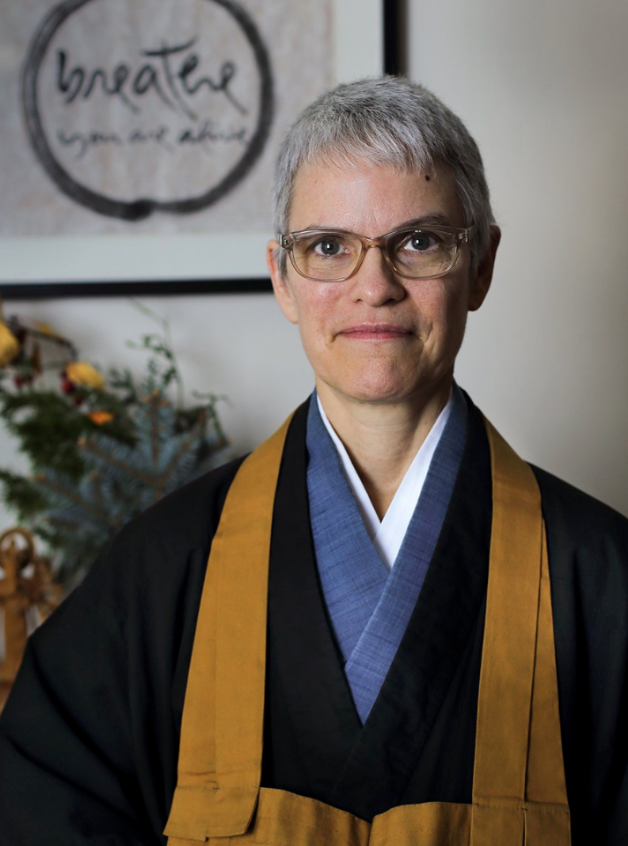Our Responsibility as Buddhist Practitioners to Engage in the Political Realm
Image via Unsplash
By Sosan Theresa Flynn, Guiding Teacher
Did you know that political leaders are considered to be one of the four groups of benefactors for Buddhist Practitioners? People who work in the realm of politics benefit us. These are elected officials, but also anyone who works for change in the social/political sphere. These leaders help find ways for us to exist together in social groups more or less harmoniously.
Politics can be defined broadly as “the set of activities associated with making decisions in groups, or other forms of power relations among individuals, such as the distribution of resources or status.” The teacher Domyo Burk tells us, "In this sense, none of us – regardless of our appetite for engaging in electoral politics or debate – are able to opt out of politics. Even if we remain silent, ignorant, and passive, we are profoundly affected by the decisions other people are making for the groups we are part of."
But how can we engage in this realm while remaining grounded in our Buddhist practice? How does this community, this sangha, live together in harmony when we are also living in a pluralistic society with others who are not following the Buddha way, who are perhaps not following any spiritual path?
One set of guidelines for us is to simply follow the Three Pure Precepts, namely:
With purity of heart, I vow to do no harm.
With purity of heart, I vow to do good.
With purity of heart, I vow to free all beings.
While the third precept of "freeing all beings" mainly refers to freeing beings from the suffering caused by their attachment to impermanent things, it can also simply mean, "freeing beings from suffering." It's pretty hard to free beings from the suffering caused by their attachment to impermanent things when they are hungry, unhoused, overworked, ill without medical care, living in an unsafe environment, and so on.
So first, we endeavor to refrain from causing harm. Second, we listen to the cries of the world, which in itself is doing good. And third, we do what we can to heal and care for ourselves and others. This is politics in the purest, best sense.
Our responsibility to engage in the political realm comes from these vows. And we can engage them from a deeply spiritual place. Upaya Zen Center clarifies the first vow of "doing no harm," as "practicing not-knowing thereby giving up fixed ideas about myself and the universe." We can engage in activities to benefit society from a place of non-knowing, a place of humility, and a place of real equanimity.
We can also engage in political or social action from the standpoint of interdependence, knowing that we are all connected, not separate. The Reverend Dr. Martin Luther King, Jr., explained it thus:
“As long as there is poverty in the world, I can never be totally rich….As long as people are afflicted with debilitating diseases, I can never be totally healthy…. I can never be what I ought to be until you are what you ought to be.”
Political activities don't need to be like pulling teeth. They can be like a hand reaching back for a pillow in the night, just pure compassion for what needs to be done to help with the situation. And we don't need to do everything. Some of us will engage in lobbying, campaigning, and letter writing; some will support those who are directly involved, some will make donations; some may go off and live in a monastery - doing no harm that way. We will all play our part.
Jan Willis, professor of religion at Wesleyan University says:
I believe we have to start with very small actions. We may not, by ourselves, be able to change the entire world all at once, but we can begin to change a tiny piece of it in our everyday environment.
The important thing is that when an impulse to help arises, we remain open and curious so that we can respond in the most appropriate and loving way.
Sosan Theresa Flynn is the Guiding Teacher of Clouds in Water Zen Center.
She has studied and practiced Soto Zen Buddhism since 1992, receiving dharma transmission (full teaching authority) from Joen Snyder O’Neal in 2012. Sosan's areas of teaching include body awareness in Zen, loving-kindness practices, and the intersection of Buddhist practice and racial justice. She has officiated at many ceremonies (daily & special liturgies, weddings, baby namings, and memorial services), and offers premarital and couples counseling. Sosan was raised Catholic and practiced Catholicism for many years before embracing Buddhism as her primary religion. She has a master’s degree in Counseling Psychology and has worked in both community mental health and staff training. Sosan and her husband of 36 years live a short distance from Clouds in Water. For more information, see Sosan’s website.


